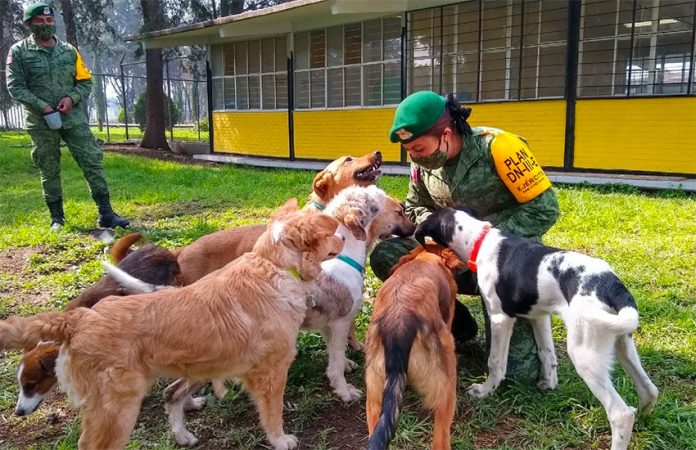An unoccupied kindergarten building has been transformed into a shelter for street dogs near the new Mexico City international airport, under construction in Zumpango de Ocampo on the outskirts of Mexico City.
The Doggies of Santa Lucía shelter, run by the army, was set up after the airport’s architects and workers noticed a large number of stray dogs wandering near the construction site.
The shelter can host up to 50 dogs that will receive medical attention, food and shelter.
“The shelter’s objective is to give the dogs a temporary home and to adapt them to live with humans and other dogs so they can be adopted by a family,” said Second Lieutenant Carla Medellín, a veterinarian.
Not all dogs that arrive at the shelter are intended for adoption. Specialists and veterinarians will also look for dogs that can work at the Santa Lucía airport by detecting Covid-19 patients or even drugs.
“Dogs can help us as medical alert dogs. They can detect cancer, hypertension, early diabetes or Covid-19,” said Pamela Díaz, an architect at the airport. “Mainly at the airport, they will provide a way of carrying out fast tests.”
Reuters
